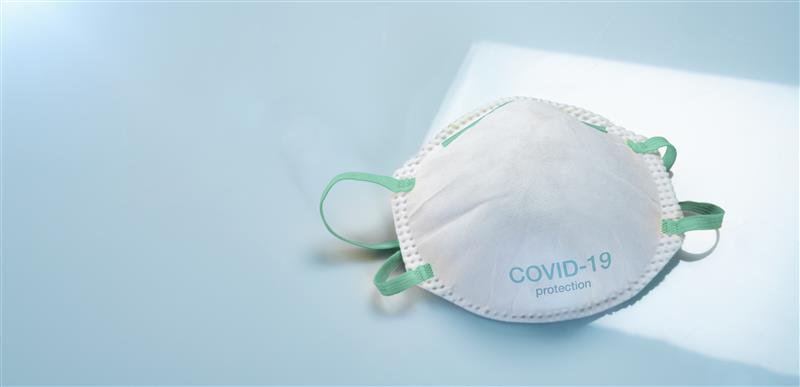
Governor Encourages New Yorkers to Keep Using the Tools to Protect Against and Treat COVID-19: Vaccines, Boosters, Testing and Treatment
22 Statewide Deaths Reported on February 8
Governor Kathy Hochul today updated New Yorkers on the state's progress combatting COVID-19 and outlined basic steps they can take to protect against the spread of viral respiratory infections that become more common in the winter season.
"I urge all New Yorkers to remain vigilant and continue to use all available tools to keep themselves, their loved ones and their communities safe and healthy," Governor Hochul said. "Be sure to stay up to date on vaccine doses, and test before gatherings or travel. If you test positive, talk to your doctor about potential treatment options."
Governor Hochul is urging New Yorkers to take common prevention measures — like staying up to date on vaccines and practicing proper hygiene — to protect from the flu and COVID-19 and reduce the patient burden on local hospitals. The Governor reiterated these basic steps when she updated New Yorkers on the state's winter health preparedness efforts in December.
The New York State Department of Health's weekly flu surveillance report for the week ending January 28, shows influenza remaining widespread throughout the state for a seventeenth consecutive week, with a total of 308,279 positive cases across 57 counties reported to date. The report found that confirmed cases statewide dropped 34 percent to 2,937 for the week, while overall hospitalizations were down 35 percent from the previous week, at 304 hospitalizations across the state.
Additionally, there were 6 outbreaks in acute care and long-term care facilities, the report determined. There was one influenza-associated pediatric death reported bringing the total to nine statewide.
With flu season continuing and infections remaining widespread, Governor Hochul encourages all New Yorkers to get their annual flu vaccine. The flu virus and the virus that causes COVID-19 are both circulating, so getting vaccinated against both is the best way to stay healthy and to avoid added stress to the health care system.
The Health Department is continuing its annual public education campaign, reminding adults and parents to get both flu and COVID-19 shots for themselves and children 6 months and older. For information about flu vaccine clinics, contact the local health department or visit vaccines.gov/find-vaccines/.
Governor Hochul also continues to urge New Yorkers to get their bivalent COVID-19 vaccine boosters. In December, the New York State Department of Health announced new guidance for bivalent COVID-19 booster doses, which are now available for eligible children down to 6 months of age.
The updated boosters are the first to be targeted to the original virus strain and recently circulating variants and are recommended for young New Yorkers and all those eligible. To schedule an appointment for a booster, New Yorkers should contact their local pharmacy, county health department, or healthcare provider; visit vaccines.gov; text their ZIP code to 438829, or call 1-800-232-0233 to find nearby locations.
Today's data is summarized briefly below:
- Cases Per 100k - 14.90
- 7-Day Average Cases Per 100k - 12.25
- Test Results Reported - 55,748
- Total Positive - 2,911
- Percent Positive - 5.00%**
- 7-Day Average Percent Positive - 5.27%**
- Patient Hospitalization - 2,236 (-90)
- Patients Newly Admitted - 311
- Patients in ICU - 264 (-17)
- Patients in ICU with Intubation - 102 (0)
- Total Discharges - 398,622 (+366)
- New deaths reported by healthcare facilities through HERDS - 22
- Total deaths reported by healthcare facilities through HERDS - 61,524
** Due to the test reporting policy change by the federal Department of Health and Human Services and several other factors, the most reliable metric to measure virus impact on a community is the case per 100,000 data -- not percent positivity.
The Health Electronic Response Data System is a NYS DOH data source that collects confirmed daily death data as reported by hospitals, nursing homes and adult care facilities only.
Important Note: Effective Monday, April 4, the federal Department of Health and Human Services is no longer requiring testing facilities that use COVID-19 rapid antigen tests to report negative results. As a result, New York State's percent positive metric will be computed using only lab-reported PCR results. Positive antigen tests will still be reported to New York State and reporting of new daily cases and cases per 100k will continue to include both PCR and antigen tests. Due to this change and other factors, including changes in testing practices, the most reliable metric to measure virus impact on a community is the case per 100,000 data -- not percent positivity.
· Total deaths reported to and compiled by the CDC - 78,197
This daily COVID-19 provisional death certificate data reported by NYS DOH and NYC to the CDC includes those who died in any location, including hospitals, nursing homes, adult care facilities, at home, in hospice and other settings.
Each New York City borough's 7-day average percentage of positive test results reported over the last three days is as follows **:
Borough | Monday, February 6, 2023 | Tuesday, February 7, 2023 | Wednesday, February 8, 2023 |
Bronx | 4.98% | 4.91% | 4.69% |
Kings | 3.82% | 3.69% | 3.94% |
New York | 4.09% | 4.09% | 3.87% |
Queens | 4.69% | 4.54% | 4.33% |
Richmond | 4.64% | 4.30% | 4.50% |
